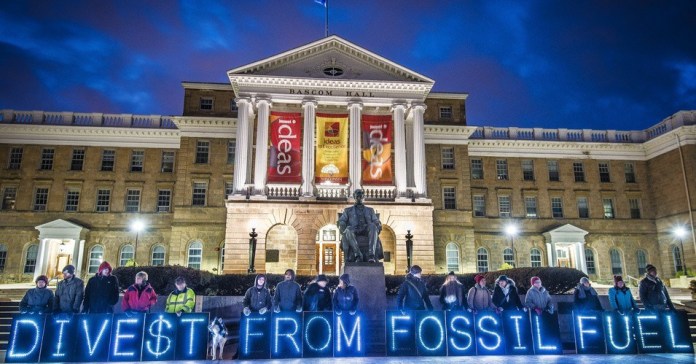Rutgers University announced a commitment to fossil fuel divestment after the university’s Board of Governors and Board of Trustees approval. The University is the latest U.S. academic institute to make the transition.
According to a press release, the “decision follows the recommendation of an ad hoc committee of faculty, students and staff formed to consider a fossil fuel divestment request from a student group, the Endowment Justice Collective.”
“This decision aligns with Rutgers’ mission to advance public health and social justice,” Jonathan Holloway, president of Rutgers University, said. “While the university has taken steps recently to limit investments in this area, approving a policy of divestment from fossil fuels is a significant expression of the values of our institution and our broader community.”
According to the committee, “fossil fuel investments are investments in any company or fund whose primary business is the exploration or extraction of fossil fuels, including coal, oil and natural gas, or whose primary business supports this sector with infrastructure and other services.”
Five percent of Rutgers University’s $1.6 billion endowment is made up of fossil fuel investments with 60 percent of the investments in private funds and the rest are in public equity or fixed income accounts, the University reported.
The University’s divestment plan will:
- Cease all new investments in fossil fuels.
- Divest from passive index funds with fossil fuel investments within one year and reinvesting in more environmentally friendly versions of those indices. And actively seek new investment opportunities in renewable energy and energy efficiency categories that deliver competitive rates of return.
- Exit all currently held private fossil fuel investments within 10 years.
“We are doing our part to ensure a sustainable environment for future generations of students, while continuing their access to an affordable education,” Mark Angelson, chair of Board of Governors, said.
Students at Rutgers University celebrated the “powerful decision” to divest from fossil fuels.
“Divesting from fossil fuels aligns with our scarlet values and with the university leadership on important issues that students rightfully expect from Rutgers,” Zunaira Wasim, a junior at Rutgers University-New Brunswick, one of four students who served on the committee, said. “Students like me have expressed our desires to see the university rapidly decrease its carbon footprint and will be proud to see Rutgers taking this step.”
Related posts:
Views: 0
 RSS Feed
RSS Feed

















 March 11th, 2021
March 11th, 2021  Awake Goy
Awake Goy 

 Posted in
Posted in  Tags:
Tags: 
















